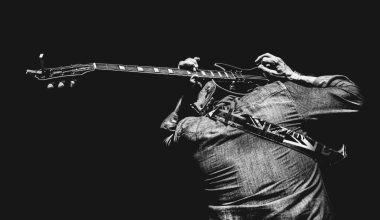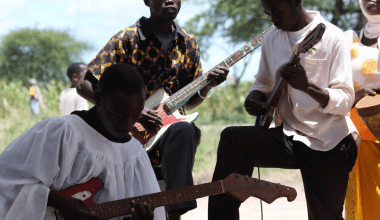Starting a music festival can be an incredible way to bring people together, celebrate music, and create lasting memories. It may seem like a daunting task, but with the right approach, you can turn your vision into a reality. In this guide, we’ll walk you through every step to help you successfully launch your own music festival. Whether you’re dreaming of an intimate local event or a large-scale festival, this guide will equip you with the tools you need.
1. Envision Your Festival
The first step in starting a music festival is to define your vision. What type of festival do you want to create? Is it a rock festival, a jazz gathering, or an eclectic mix of genres? Ask yourself questions like:
- What is the purpose of your festival?
- Who is your target audience?
- What kind of vibe or theme do you want to create?
Having a clear vision will guide every decision you make, from selecting artists to marketing the event.
2. Research and Planning
Once you have a clear vision, it’s time to dive into research. Look into other music festivals similar to your idea. What makes them successful? What challenges do they face? Understanding the landscape will help you avoid common pitfalls.
Key Steps in Planning:
- Budgeting: Estimate your costs for artists, venue, permits, equipment, and marketing. Always include a contingency fund.
- Venue Selection: Find a location that aligns with your festival’s vibe and can accommodate your audience size.
- Legal Requirements: Research permits, licenses, and insurance needed for your event.
3. Build Your Team
You can’t do it all alone! A successful music festival requires a team of passionate and skilled individuals. Start by identifying key roles:
- Event Manager: Oversees the entire operation.
- Talent Booker: Handles artist bookings and contracts.
- Marketing Specialist: Manages promotions and social media.
- Technical Crew: Manages sound, lighting, and staging.
Work with people who share your vision and bring expertise to the table.
4. Book Your Artists
The lineup is one of the most important aspects of a music festival. Research artists that fit your festival’s theme and audience. Reach out to their agents and negotiate contracts. Keep in mind:
- Offer fair compensation within your budget.
- Ensure artists have clear agreements regarding performance times and requirements.
- Include both headliners and emerging artists to create a diverse lineup.
5. Secure Your Venue
Finding the perfect venue can make or break your festival. When selecting a venue, consider:
- Accessibility: Is it easy for attendees to reach?
- Facilities: Are there restrooms, parking, and food areas?
- Capacity: Can it comfortably hold your expected audience?
Visit potential venues in person and work closely with the venue manager to understand logistical requirements.
6. Marketing Your Festival
Once you have the basics in place, it’s time to spread the word. A strong marketing strategy will ensure your festival reaches its target audience. Use these strategies:
- Social Media: Create buzz with behind-the-scenes content, artist announcements, and ticket promotions.
- Website: Develop a professional website with festival details and ticket purchasing options.
- Email Campaigns: Build a mailing list and send regular updates.
- Partnerships: Collaborate with local businesses, media outlets, and influencers.
7. Ticket Sales
Pricing your tickets is a balancing act. You want to cover costs while making the event accessible to your audience. Offer different tiers such as early bird discounts, VIP passes, and group rates. Use an online ticketing platform to make purchasing easy for attendees.
8. Logistics and Operations
Behind every successful music festival is a well-oiled machine of logistics. Pay attention to:
- Sound and Lighting: Hire professionals to ensure top-notch production quality.
- Security: Work with local authorities and hire security personnel to ensure safety.
- Vendors: Partner with food and merchandise vendors to enhance the festival experience.
- Waste Management: Have a clear plan for cleaning up before, during, and after the event.
9. Day-of Event Execution
When the big day arrives, you want everything to run smoothly. Have a detailed schedule and assign responsibilities to your team members. Stay flexible to handle unexpected challenges. Remember to:
- Conduct soundchecks for all artists.
- Have emergency plans in place.
- Keep your team motivated and communicate clearly.
10. Post-Festival Wrap-Up
Your work isn’t done once the festival ends. Take time to reflect on what went well and what could improve. Send out surveys to attendees and gather feedback. Finally, thank your team, artists, and sponsors for their contributions.
For further reading, explore these related articles:
- Best Distributor for Spotify: A Comprehensive Guide
- Mix Master AI: Revolutionizing Creativity One Step at a Time
For additional resources on music marketing and distribution, visit DMT Records Private Limited.





